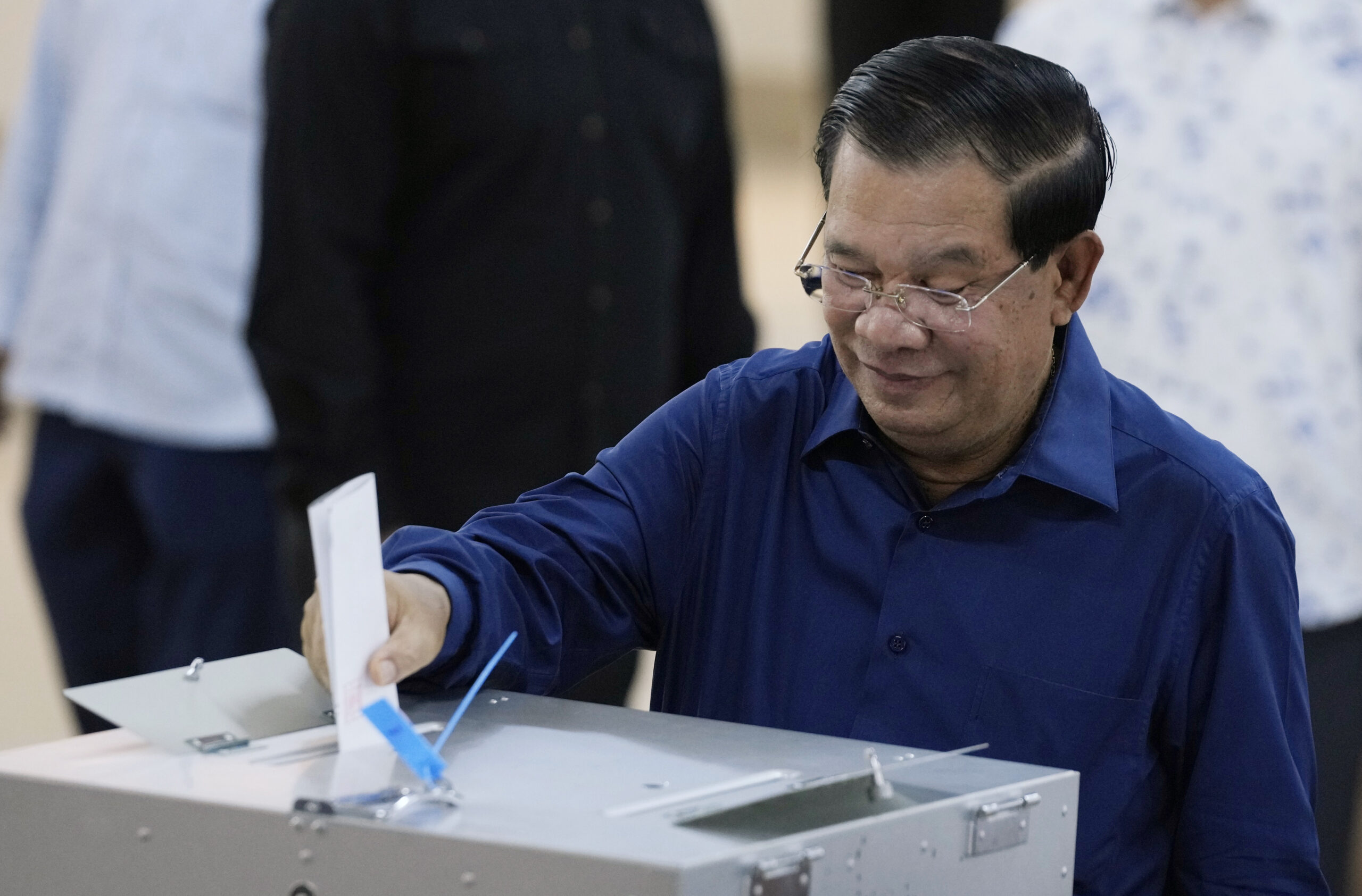PHNOM PENH, Cambodia (AP) – The ruling party of Cambodia’s long-time Prime Minister Hun Sen claimed a landslide victory in Sunday’s general election.
Hun Sen posted on his Telegram channel late Sunday that unofficial results compiled by authorities in each province showed the Cambodian People’s Party won 120 seats and the royalist FUNCINPEC party won five.
The National Election Committee said 84.6 per cent of eligible voters had cast ballots. CPP spokesperson Sok Eysan told The Associated Press he believed his party captured 78 to 80 per cent of the total turnout.
The European Union, the United States and other Western countries had refused to send observers to the polls, saying the election lacked the conditions to be considered free and fair. That left international officials from Russia, China and Guinea-Bissau to watch as Hun Sun voted shortly after the polls opened in his home district outside of the capital, Phnom Penh.
He held his ballot high for all to see, before depositing it into the silver metal box and leaving the station, pausing to take selfies and shake hands with supporters outside.

The longest-serving leader in Asia, Hun Sen has steadily consolidated power with strong-arm tactics over the last 38 years. But, at age 70, he has suggested he will hand off the premiership during the upcoming five-year term to his oldest son, Hun Manet, perhaps as early as the first month after the elections.
Hun Manet, 45, is chief of Cambodia’s army. He is a West Point graduate with a master’s degree from New York University and a doctorate from Bristol University in Britain.
Despite his Western education, however, observers don’t expect any immediate shifts in policy after his father steadily moved Cambodia closer to China in recent years.
“I don’t think anyone expects Hun Sen to sort of disappear once Hun Manet is prime minister,” said Astrid Norén-Nilsson, a Cambodia expert at Sweden’s Lund University. “I think they will probably be working closely together and I don’t think that there is a big difference in their political outlook, including foreign policy.”
Hun Manet is part of an expected generational change in the ruling party, which plans to install younger leaders in most ministerial positions.

“That’s going to be the big change of guard, that’s what I’m watching,” Norén-Nilsson said. “It’s all about the transition, it’s all about who’s going to come in and in what positions they find themselves.”
At the station where Hun Sen cast his ballot, voter Nan Sy, a former lawmaker himself with a smaller royalist party, said the main issue for him was stability.
“Without stability we cannot talk about education, we cannot talk about development,” the 59-year-old said without saying who he voted for.
There were few reports of any protests against the elections, but General Khieu Sopheak, Cambodia’s national police spokesperson, said 27 people were being sought over allegations they called for voters to spoil their ballots in a Telegram chat channel. He said there had been two arrests at polling stations as well.
Hun Sen had been a middle-ranking commander in the radical communist Khmer Rouge responsible for genocide in the 1970s before defecting to Vietnam. When Vietnam ousted the Khmer Rouge from power in 1979, he quickly became a senior member of the new Cambodian government installed by Hanoi.







